“For young men under eighteen, wine should be forbidden. Those from twenty to forty should drink moderately, and those over forty may drink as much as they wish to ease the hardships of old age and return to youthful spontaneity…”. Plato, an ancient Greek philosopher of the Classical period who is considered a foundational thinker in Western philosophy.
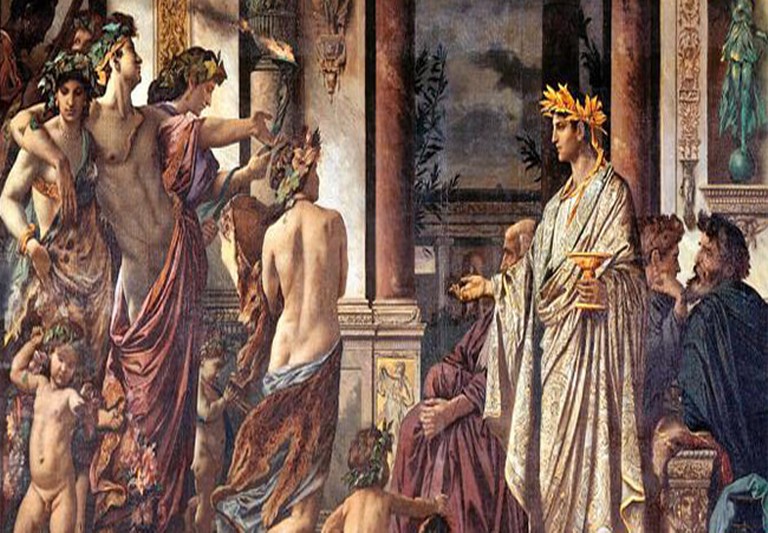
Philosophers and drinkers of all times and nations have learned this wisdom from Platon. And the Roman emperor and philosopher Marcus Aurelius simplified it:
“Why should we darken our foreheads with thoughts?
Shall we prevent the future with thoughts?
Wine is the medicine of medicines.
So, let’s get drunk!“
Wine is as old as the world. Or perhaps even older. Humans were taught to drink and be merry by God’s children, the angels. Or maybe it was taught to them by goddamn children. Because when a man gets drunk, he does things that the angels could not have taught him. There’s a reason people say he’s got a demon in him.
Anyway, please, let me tell you something that even Platon didn’t know.
A Bible legend tells of a party that ran out of wine. Nothing spoils a party like an empty bottle of wine in the middle of it. Jesus Christ was present, and the drunken crowd begged him to perform a miracle. Jesus heeded the pleas of those who were suffering and turned the water into wine. This experiment of the Son of God was the impetus for all the great magicians like Harry Houdini. He performed inexplicable miracles, but he could not make wine out of water.
To his followers, Jesus remained the consummate magician. He was a flesh and blood man who recognized the authority of a Higher Power. Jesus could perform miracles, probably because he understood Mother Nature. The rest of humanity has an inexplicable flaw:
We have been given ears to hear, but most of us cannot hear simple truths. We are given eyes to see, but many of us cannot distinguish green from red or light from darkness. Perhaps that’s why people don’t learn from their mistakes. And children repeat their parents’ mistakes.

Have you ever tasted salted wine? The ancient Greeks knew the benefits of salted wine long before Christ was born. Its healing properties were recognized by the healers of ancient Greece and Rome. This wine was in demand among the nobility, and its cost was so high that ordinary people could not afford it.
The ancient Greeks made wine from grapes and drank it diluted with water. They took water from mountain springs. But one day the wine accidentally met with salty sea water. The philosopher Pliny the Elder told us how it happened and what came out of it.
The Greeks made the most delicious wine on the island of Kos. A slave used to steal wine from his master and to hide his shenanigans, he added water to the wine. But one day he made a mistake and added sea water instead of fresh water to the amphora with wine.
And a miracle happened! Many people liked the salty wine. And after healers discovered the healing properties of salted wine, it quickly became popular and was called “White Kos”.
In those days there were no patents for inventions, so the slave got nothing for his discovery, except whips.
To make salted wine, the inhabitants of the island of Kos took seawater from secluded bays, away from waves and wind, where the water was exceptionally clear. This seawater was then aged for many months in clay amphorae to allow all the invisible particles to settle out.
Purifying the seawater took more time than making the wine itself.
For the Greeks and Romans, wine was the second most popular drink after water and was consumed by all classes. The philosopher Euripides noted this as a fact of social equality, pointing out that the Greek god of wine, Dionysus, intoxicated rich and poor alike. Another philosopher, Cato, argued that even a slave in chains should receive ten amphorae of wine a year, or five liters a week. He must have been a democrat.
Plebeians had to make do with poor quality, often highly diluted wine, later known in France as “piquet.” This mildly alcoholic, bitter drink was made by fermenting the skins, stems, and seeds left over from the last pressing of grapes. But it was still much healthier than ordinary water from the river.
In the Roman Empire, a similar drink called posca was given to soldiers as a daily ration. This low-alcohol drink was safer than water from reservoirs teeming with bacteria from rotting corpses and human and animal waste. Sick and wounded soldiers were given real wine as medicine.

Four centuries before Christ, salt wine was exported from the island of Kos to the Roman Empire, where it became instantly popular among the aristocracy thanks to court herbalists who discovered that salt wine was a remedy for intestinal disorders. The Apostle Paul himself advised: “Henceforth do not drink water alone, but add a little wine to it, to heal the stomach and frequent sicknesses…”.
Sweet wine was favored by the rich, and winemakers in ancient Greece and Rome went to great lengths to please them. For example, they made wine sweeter by drying grapes before fermentation, or by adding honey to it. Sometimes the honey content of the wine was so high that it became too viscous. To get rid of the cloying flavor and increase the natural acidity, such wine, thanks to a Greek discovery, was diluted with seawater. To improve the flavor, herbs, and spices were added to the wine, especially cloves and cinnamon, which not only gave it flavor but also prevented it from souring. The normal aging period was from 1 to 5 years, older wines were considered spoilt.
The popularity of Kos Island wine gave rise to a shadow market and counterfeiting. It was not difficult, the salinity in the flavor blurred the characteristics of the wine and it was impossible to distinguish, for example, the salty wine of Rhodes from the salty wine of Kos.
Piracy on land has as old a history as piracy at sea. Take, for example, the counterfeiting of Cuban cigars and the copying of wine names. Big business sharks have long learned to make money on promoted brands and it is used everywhere, including in the industry of production of expensive sparkling wines. Fraudsters call fakes champagne wines, knowing full well that they are pirates, violating French legislation, which defines champagne as wine produced exclusively in the province of Champagne.
“SYMPOSIUM” IN GREEK.

Among the upper classes, there was a ritual called “symposium” (or symposion). This event was usually held after a meeting and dinner when all important political and economic issues had been resolved, hunger had been satisfied, and it was time to relax. The symposium was a gathering of people with state status, and they spent their time without the risk of being subjected to gossip and rumors. For this reason, non-delegates and prostitutes were not allowed to attend the symposium. However, after the statesmen had taken a certain dose of alcohol, the latter became in demand.
The wine was drunk from small bowls called kylixes, and the feast was accompanied by the recitation of poetic odes, the playing of musical instruments, and conversations on free topics. Drinking wine at a symposium was believed to make people more sincere and open-minded and encouraged the free exchange of ideas and opinions.
At symposia, wine was drunk and diluted with water. Pure, undiluted wine, which today seems to be the only acceptable wine, was called akratos (unmixed) and was considered a drug that could drive a person mad or even kill him.
One of the duties of the head of the house (he was called “symposarch”) was to prepare the mixture for the symposium participants. The ratio of water to wine was usually 3:1 or 3:2 to produce a drink of 5 to 10 percent strength, no more. The proportions could vary, but they were never arbitrary. A mixture of 3:1, or three parts water to one part wine, was thought to be best for lovemaking, and stronger mixtures caused intoxication and drowsiness. Proper proportions were considered a sign of adherence to ideas of balance and proportion.
Fortified wine, drunk in the northern lands, was not accepted by the ancient Greeks.
In ancient Greece, drinking wine not diluted with water was considered the domain of commoners and there was even an expression “to drink like a Scythian”. The Spartan king Cleomenes fell into madness and died after drinking undiluted wine in the company of Scythian ambassadors. Wine in the Greek manner, i.e. diluted with water, was and still is a sign of civility in good society.
The use of beer, pure wine, and drunkenness was considered a sign of non-civilization, even barbarism. However, the intoxication of nobles at symposia was not condemned, it was considered a side effect of the regulated ceremony. In other words, what was allowed to some was not allowed to others, and such others were subject to public condemnation.
These inequalities persist to this day.
The famous aphorism “In Vino Veritas” became a kind of motto of such symposia. They were noisy parties with musicians and dancers where people relaxed, drank wine, and had fun with prostitutes or boys. Older women were allowed to attend the symposia as “ambulances” when it was necessary to attend to men who were intoxicated to the point of insensibility.

In his ‘Laws’, Platon regarded the symposium as a place for authentication and wine as a means of exposing lies and revealing the truth. He argued that it is only while drinking that you can recognize the thoughts of your interlocutor. Wine liberates you and takes you beyond the conventions of the world. And therein lies the danger, not only for the subject himself but also for those who experience it. Every corporate party these days has the same meaning. Smart owners let their employees get drunk to determine who are the careerists, gossipers and ass-kissers.
Platon also believed that “…warriors, seafarers, and judges, whose professional abilities might be impaired by the use of wine, should drink only water…”. This was written a thousand years ago! But contemporaries do not remember this sage’s opinion.
HOW WINE HAS MADE US RESPECT IT.
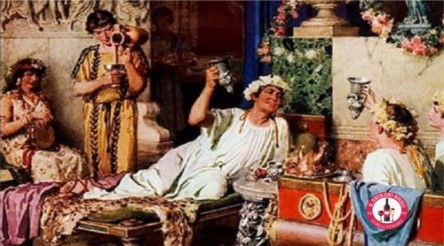
Drunkenness and the potential harm of wine have been a theme in the works of many ancient authors. In Homer, one of Odysseus’ companions got drunk and crashed to death falling off a roof. Another, described as a bitter drunkard, slipped on a wet road and broke his neck. The Thracians, Scythians, and Macedonians, including all their leaders, were commonly portrayed as barbarians because of their excessive alcohol consumption.
For example, Justin wrote that Alexander the Great “…often left feasts stained with the blood of his fellow travelers” and that he killed his friend Clytius in a drunken brawl…”. And his father, Philip II, was said to get drunk every day, even when leading his army into battle.
In both Greece and Rome, women who drank alcohol were frowned upon. Such women deserved special censure; they were considered to have sunk to the level of barbarians. Women’s drinking was ridiculed in Greek comedies as a vice that men considered immoral.
But feminism had already asserted itself, and for many women, wine was a comforting medicine to ease the suffering of the outside world and a drink to dispel sorrow. One of the characters in Euripides’ comedy Pathos says that the god Dionysus did a great good by inventing wine and giving it to man:
“…for, transfixed by the sublime power of this gift,
…men are fortunate enough to forget their burdens.
Sleep makes them forget their cares and worries,
There is no better remedy for troubles...”
Wine has become an integral part of Christian theology and tradition.
In the ritual of Holy Communion, wine symbolizes the blood of Christ.
The Christian Church, especially in Germany, became an ardent supporter of wine and gave aid and patronage to viticulture and winemaking. Monasteries were important centers of winemaking in the Middle Ages. It was the monks who invented a wine that today is one of the top five most expensive wines in the world. It’s called riesling.
Throughout the centuries, religion, culture, economy, society, medicine, and diet have been closely linked to wine. The drink has acquired its individuality, has become a product of human existence, is inseparable from the life of society, and is consumed in increasing quantities. Therefore, the ancient aphorism can be adapted to our time: “In Vino Societas!”.
THAT THE ANCIENT GREEKS DIDN’T KNOW.

One thousand five hundred years passed. One day Christopher Columbus crossed the Atlantic Ocean and discovered amazing lands. His sailors were shocked to see jungles and forests full of strange fruit trees, herds of animals grazing in mountain valleys, fish splashing in the seas and rivers, giant turtles, and fat sea cows. And overall this earthly paradise flew clouds of fat pigeons and ducks.
On the islands and coasts grew spreading trees with broad, unusually strong leaves on their long branches. They grew at the water’s edge, their roots drinking the seawater, and their lush crowns sheltered bunches of grapes-like berries from the hot sun and tropical rains. The berries tasted both sweet and salty at the same time. Nature has hidden this marvelous salty grape from the greedy eyes of man at the edge of the world. And that’s why the ancient Greeks didn’t know about it.
Once, traveling through the wondrous places discovered by Columbus, I heard a legend from the local Mayans that angels were flown down to here to bathe in the sea, the only warm year-round sea on the planet. She was made that way by the warm Gulf Stream, whose home is here. Perhaps the celestial creatures are not devoid of human passions, they also love to dance and party while God sleeps. And to make their Caribbean holiday even more enjoyable, the angels have grown some wonderfully sweet and intoxicating grapes on the shores of the warm sea. These special grapes are used by locals to make a unique sweet and salty wine.
The seagrape does not grow anywhere else in the world and cannot be grown on plantations far from the sea. Wine made from it has an insidious effect. It acts like a sleeping pill. The wine tastes pleasantly sweet and slightly salty, and after the first glass, you want more. And then comes drowsiness and deep healthy sleep, in which you have colored dreams. When I heard this legend from the Mayans, I was intrigued by it. I couldn’t wait to try to make the wine that the angels had invented.
CELLAR SECRETS.

Winemaking is not just a profession. It is a science, and clever books describe methods and guidelines for making different wines. It is also an art in which there are no standard solutions, and the same wine made by different winemakers will have different tastes and aromas.
Winemaking is a process of trial and error, where the vagaries of dry or rainy weather and even random factors such as smoke from a campfire at harvest or temperature disturbances during storage influence the flavor of a drink.
The main condition for successful fermentation of grapes is a stable air temperature in the room where the process occurs. In the tropics, there are large fluctuations in temperature between day and night. This slows or stops the fermentation process and the wine is sweet, with a high residual sugar content.
Regular grapes don’t grow in the Caribbean tropics, it is too hot. But fruits are everywhere and in abundance, all year round. After seeing their variety and appreciating their taste, I thought that unique fruits could be used to make unique wines. Little did I know that it would take me ten years of experimentation to master the intricacies of this science and learn how to make a dry wine that has no residual sugar, but has the unique flavor and aroma of the fruit from which the wine is made. Ten years of study is cooler than a few years of university, after which the learning just starts in practice.
With the advent of supermarkets in our lives, the era of aged and vintage wines is becoming a thing of the past. Unfortunately. Wine used to be aged for decades in barrels, in dark and cool cellars. Today, such wine can only be found in private collections and in very limited quantities.
Nowadays, wine does not linger in dark and cool cellars, it is bottled. When wine hit the shelves of the first supermarkets in the early 1970s, it was exposed to daylight and temperature fluctuations. And it began to rebel – fermenting, souring, popping the cork, and exploding the bottle. This is due to the oxygen that inevitably gets into the wine when it is transferred from barrel to bottle. To tame the wine, chemists came to the aid of the peddlers. They added sulfites to the wine.
There are naturally occurring sulfites in wine. They are a by-product of fermentation, during which the sugar in the wine is converted into alcohol by yeast. At the end of the fermentation process, the wine collects sediment, and that is periodically removed. A small portion of the sulfites remains at the bottom of the barrel and turns into crystals. Chemists began to add sulfites to wine at the final stage, when the wine is transferred from barrels to bottles and the oxygen in the wine revitalizes the wine berries, provoking the fermentation to continue. The added sulfites neutralize the action of the tartaric berry, which lives in the wine and gives it its characteristic aromas and flavors over the years. But that’s all as long as the wine is in the barrel. When the wine is bottled, the added sulfites kill the tartaric berry to prevent fermentation and sedimentation. This stops the process of “maturation” and enrichment of the wine. Once chemists stopped this natural process in wine, the aging lost its sense.
An important factor is the soil of the vineyard. It used to be given time to rest so that the soil could replenish the minerals that give the wine its characteristic flavor and aroma. But as the demands of the wine trade grew, winemakers turned to chemists again. And they created mineral fertilizers. Now all the fruit and grape plantations are poisoned with pesticides. Which gets into the bloodstream of the consumer. The body, having eaten this poison, gets sick and dies.
If the soil of the plantation does not have time to accumulate natural minerals, the grapes lose their flavor. And that’s where chemists came to rescue business again. They began to chemify wine, adding flavorings to it. A bouquet of flavors created in a test tube is a marketing technique to mislead the consumer. Such chemically laced wine retains its artificial flavors for a year or two, after which the wine oxidizes, darkens and completely loses its qualities.
To prevent this from happening, chemists suggested that producers add alcohol to wine. In their language, this technique is called “fortification”. Wine with alcohol added to it does not spoil for a long time, it is called fortified, and such wine blurs the brain and beats on the liver. This wine has no natural flavor. The producer will not tell you that alcohol has been added to the wine. Because you are, after all, buying the wine from the next entrant, the merchant. Who doesn’t care.
To find out if a wine has additives, read the label on the back of the bottle. Let’s say the label promises you the aroma or flavor of tropical fruits. But how can Chardonnay grapes grow far from the tropics, in the valleys of Europe, taste like tropical fruit?
Every wine producer has a chemistry lab and chemists invent all those “magic” flavors in test tubes. And they dilute the wine with them. And the marketers figure out how to attract the customer. And the supermarket owners figure out how to clean out customers’ pockets. Your pockets. That’s the line.
And wine made from tropical fruit has a full range of vitamins and minerals. Because the trees drink the salt water of the ocean, which has all the minerals. They are watered by tropical warm rains and caressed by sea breezes. The ocean doesn’t need chemicals. Think about it.
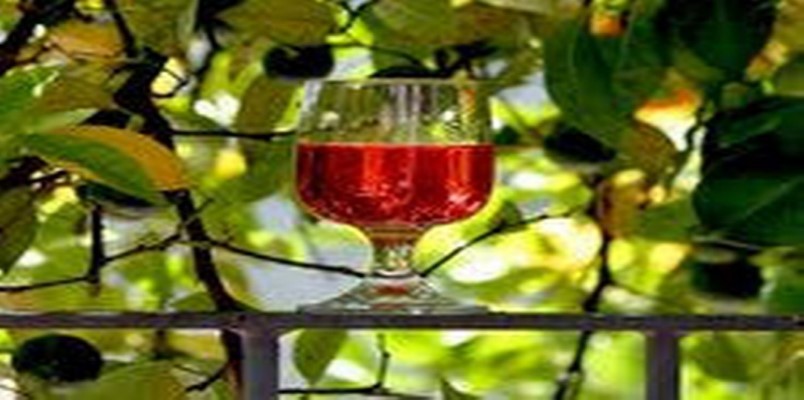
I make wines from cashew and mango, banana and pineapple, sea grapes and almonds, black cherry and coco plum. My wines are dry, semi-dry, and semi-sweet with an alcohol content of 12-14%. They do not need additional flavorings because they are made from natural fruit and contain natural flavors and aromas. They are also free of sulfites, which are present in every bottle of wine from the supermarket.
A chance discovery of an ancient recipe told me how to preserve wine without adding sulfites. In the Middle Ages, crusaders took wine with them on their raids and stored it in leather saddlebags. To keep the wine from going sour, they would add cloves or cinnamon to the wine. These spices also preserved the aroma and flavor of the wine. I add one bud of dried cloves to each bottle of my wine. After a few months of aging, the wine is ready. The wine berry has done its job, the drink has a rich flavor and aroma. And a two-year-old wine is nectar. At the bottom of the bottle of such an aged wine, a small sediment accumulates.
Just carefully pour the wine into a decanter and enjoy it with friends.
In the heat, and especially in the tropics, your body loses moisture. It becomes difficult to breathe and you feel weak. The positive effect of dry wine is that it clogs the pores, reduces sweating, and keeps you “afloat” longer under the scorching sun.
Since moving to the tropics, I drink wine diluted with water, adding ice, and a slice of lemon. And wine diluted with sparking soda is a delight, it’s almost champagne! Such diluted wine still contains vitamins and minerals, it is intoxicating and is easy on the liver.
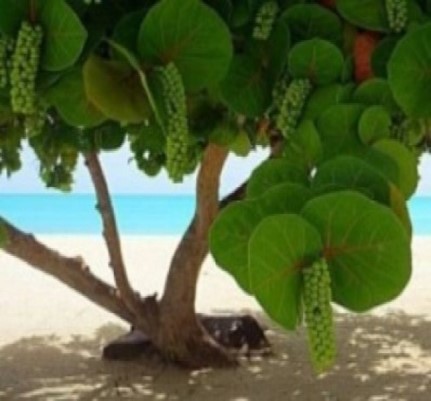
ABOUT THE MAGICAL PROPERTIES OF WINE MADE FROM SEA GRAPES.
Modern science has confirmed the conclusions of ancient Greek and Roman healers. According to scientific luminaries, salted wine has a positive effect on the human body as a whole. Science has proven that Caribbean sea grapes (berry coccoloba) activate the thyroid gland, and reduce blood cholesterol. Regular consumption of sea grapes improves the activity of the cardiovascular system, strengthens the walls of blood vessels, and makes them elastic. Is there any harm? Not at all. Just don’t eat too many of them. The juice of sea grapes removes radionuclides and heavy metals from the body. Sea grapes help to strengthen the immune system, improve metabolic processes, clean the blood vessels, and prevent blood clots.
Where can you buy wine from sea grapes? Nowhere in the world!
These grapes only grow on the Caribbean coast. By the water. The roots of the tree drink salty seawater, so it is impossible to grow these grapes on a plantation.
Sea grapes ripen in August, which coincides with the start of the rainy and hurricane season. Frequent rains are harmful to ordinary grapes. But they’re good for sea grapes! Its bunches are hidden beneath broad evergreen leaves. Warm rain and hot sun are in its element.
Locals make drinks, jams, and marmalade from sea grapes. When the grapes are ripe, the cheeks of local boys and girls are colored with pink juice. Picking grapes is not easy, they ripen unevenly and you have to pick only the ripe berries as they fall into the sand. It’s hard work.
Because of all of the above, wine made from sea grapes is unique.
In recent years, Chilean wines have risen to the ranks of French and Italian wines. The Andes foothills have the purest water from glaciers and the soil of the vineyards contains natural minerals, they have not been used for centuries as in Europe. But in the mountains of Chile, there is no hot sun, and sea grapes do not grow on the shores of the cold ocean, that’s the point! No angels have flown to those places. After all, they only like to bathe in the warm sea…..
© Copyright: Walter Maria, 2022
Certificate of Publication #222060101552
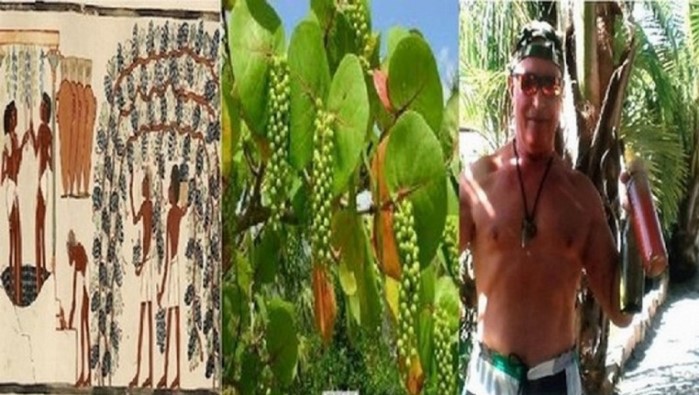
My partner and I stumbled over here coming from a different page and thought I should check things out. I like what I see so I am just following you. Look forward to exploring your web page again.
I have been looking for quality articles or blog posts for a while now. Exploring Yahoo I ultimately stumbled upon this website. Reading this information I am happy to inform you that I have an incredible uncanny feeling I found just what I needed. I will make sure not to miss this website and glance at it regularly.
It’s like you recognized my thoughts! You seem to know so much about it like you’ve written a book or something. I feel you can do just a few percent to get the thought across to the reader, this is a great blog, a great read. I’ll definitely be back.
This piece of writing presents clear idea in support of the new users of blogging, that really how to do blogging.
Hi there, after reading this amazing post i am also happy to share my knowledge here
with colleagues.
Thanks for finally writing about THIS WINE IS SALTY!!
(The Secrets of the Caribbean Sea). Walter Maria Liked it!
If some one wishes expert view concerning blogging after that i advise him/her to go
to see this web site, Keep up the good job.
I visited many websites this site is actually fabulous.
What’s up, after reading this awesome post I am also cheerful to share my experience here with mates.
Hi, terrific website! Does running a blog such as this take a lot of work? I’ve no understanding of coding however I was hoping to start my blog soon. Anyways, if you have any recommendations or techniques for new blog owners please share. I know this is off-topic however, I simply had to ask. Appreciate it!
I loved it as much as you receive it carried out right here.
The sketch is attractive, and your authored material is stylish.
users would truly benefit from a lot of the information you provide here. Many thanks!
Hi, I am so happy I found your site, while I was searching for something else. Anyway, I would like to say thank you for a fantastic post and an interesting blog (I also love the theme/design), I don’t have time to read through it all at the minute but I have bookmarked it and also included your RSS feeds, so when I have time I will be back to read more, Please do keep up the fantastic work.